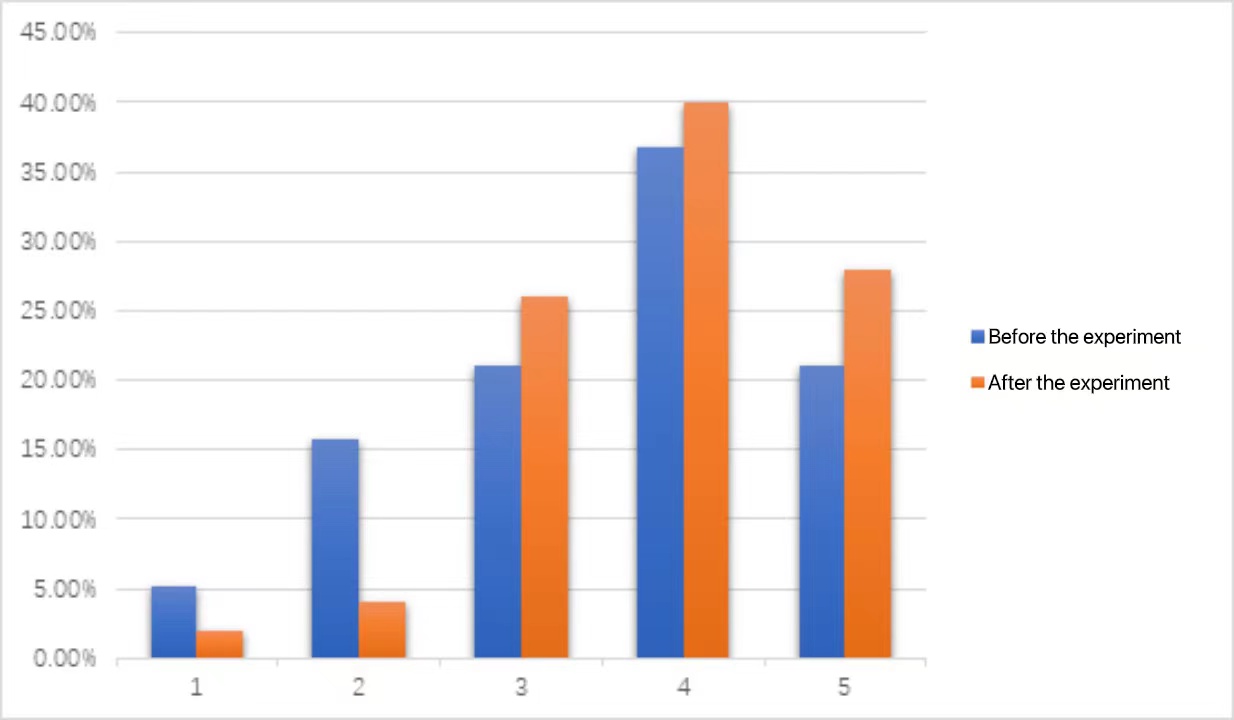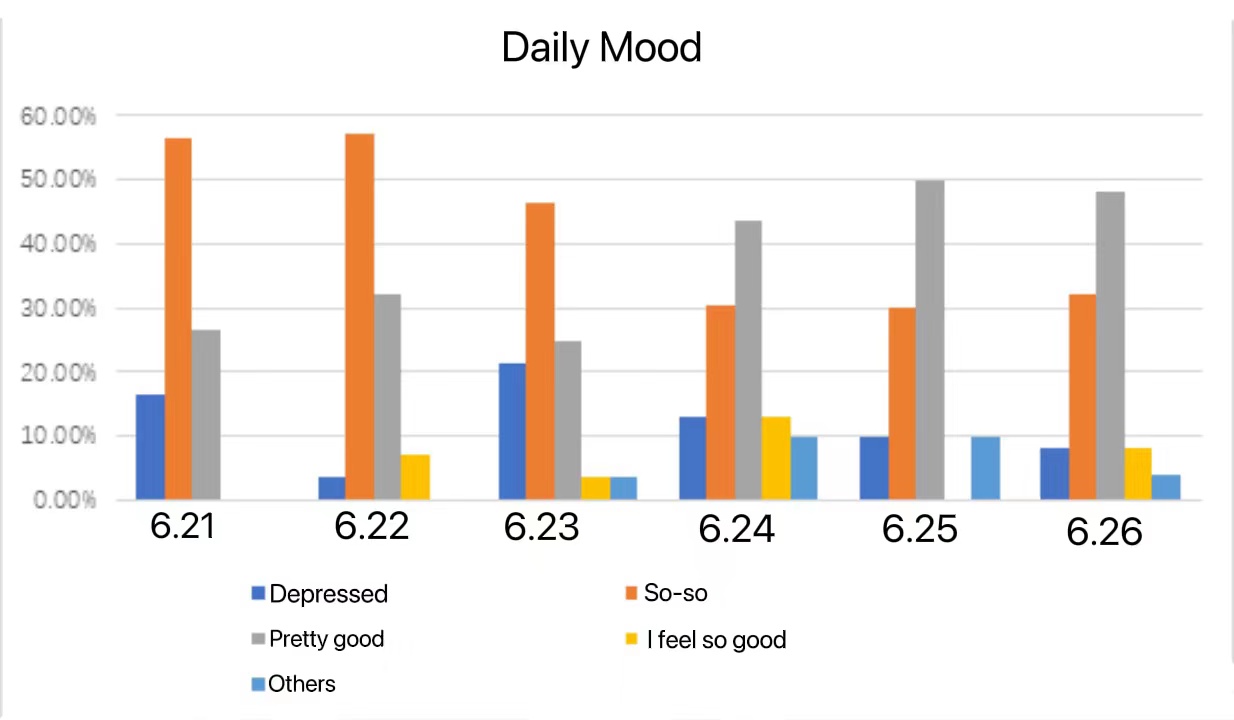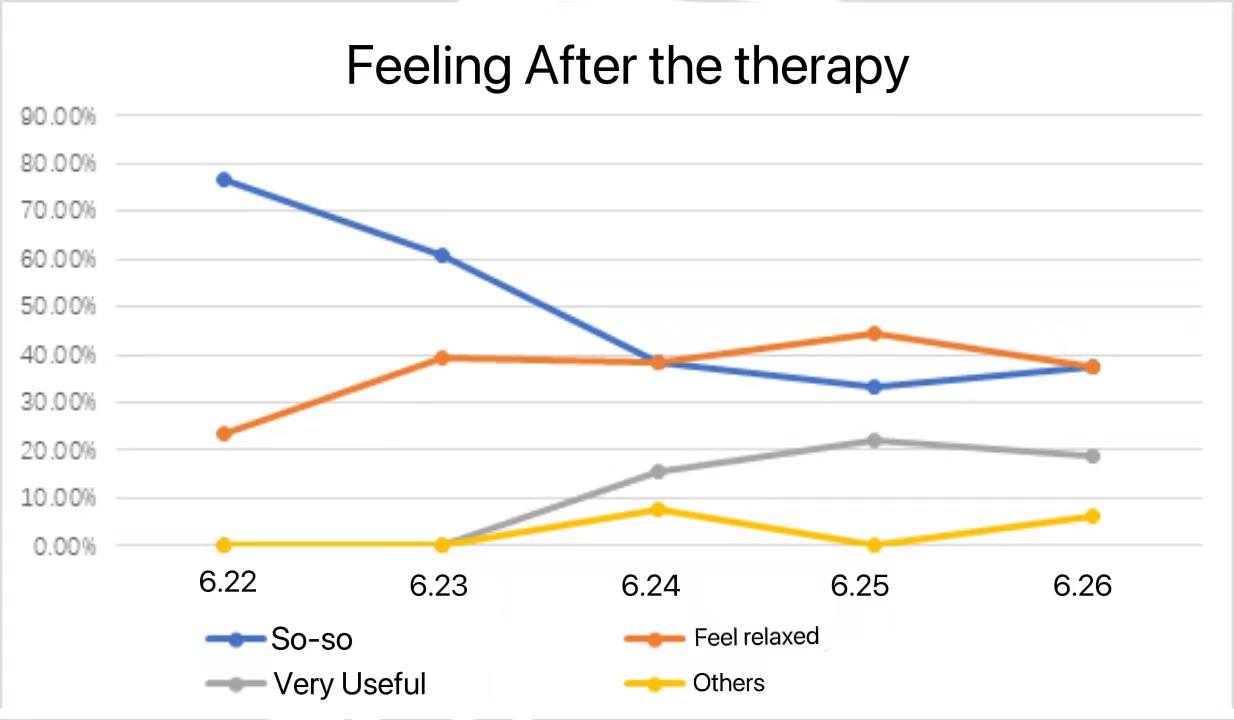1. Introduction
Insomnia is a disease that occurs during the night and is one of the main health problems for human beings. The main clinical features are difficulty falling asleep or difficulty maintaining sleep; frequent awakenings; difficulty returning to sleep after awakenings; or awakening too early with an inability to return to sleep; and are accompanied by fatigue, decreased energy, mood disturbances, and reduced cognitive functions, such as impaired attention, concentration, and memory. Insomnia affects 30% to 35% of the population [1]. According to the study, the probability that teenagers will get insomnia has dramatically increased. That will have a bad effect on their life quality, working efficiency, and psychological health, which will further affect the whole community. The causes of insomnia are the environment, stress, and some physiological factors. There are some treatments like behavioral treatment, cognitive treatment, and medicine. However, behavioral and cognitive treatment can only help people who don’t have an underlying illness, and medicine will have side effects in the long run [1]. Music-supported therapy (MST) is a promising new treatment, and extensive research suggests that MST increases the sleep quality of patients with insomnia. Music easily elicits movements that stimulate interactions between the perception and action systems; insomnia patients may be sensitive to the music, and listening to music has been considered as a therapeutic strategy for insomnia patients’ treatment [2]. The focus of this study is to learn the efficacy of music therapy on high school students' sleeping performance. Therefore, we conducted this study to systematically measure the effect of music therapy for insomnia, which will help high school students have better sleeping performance and life quality.
2. Literature Review
2.1. The Concept of Music Therapy
Music Therapy is using variety of music to clinical patients to cure from being high pressure or having a negative mood. In many clinical trials, the patients who were in Alzheimer's disease, anxiety, and sleeping disorders were using music therapy to help them cure from the disease [2][3].
2.2. The Causes of Insomnia
There are mainly four causes for insomnia: psychiatric issues, physical health issues, medications, and lifestyle habits [3]. Psychiatric issues include anxiety, depression, post-traumatic disorder (PTSD), and stress; Physical issues include allergies, lung diseases, neurological disorders, and pain; Some medications for asthma, heart disease, and blood pressure can cause insomnia; Bad lifestyle habits such as staying up late, an irregular bedtime routine, and alcohol consumption can also lead to insomnia [3]. For high school students, the most common reason is a psychiatric issue. Students usually feel stressed because of the busy school work and activities, and they are more likely to feel frustrated when facing struggles [4]. Therefore, mental diseases such as anxiety, post-traumatic stress disorder (PTSD), and depression, which cause insomnia, will act on students[4].
2.3. Consequences of Insomnia
From the research[5], we found that people should usually get seven to nine hours of sleep. People are more likely to get illness when they are situated in insomnia for long time. In addition, insomnia can impair concentration, increasing the risk of an accident while driving or performing certain activities. Furthermore, people with insomnia have a fear of social interaction with others and continue to worry about their sleeping performance, which can lead to mental illnesses such as depression and anxiety. At the same time, because of the long-term lack of sleep, people are more likely to suffer from cardiovascular diseases such as high blood pressure and heart disease. Furthermore, insomnia can cause people to feel exhausted during the day, causing them to perform poorly at work or school. In Jordan, medical and nursing students with a lower risk of insomnia had higher GPAs[6]. Norwegian university students are much more likely to fail exams if they sleep less than 6 hours or more than 10 hours[7]. Overall, insomnia has negative effects on worker’s productivity, physical health, social performance, and life quality.
2.4. Past Experiments
As a new method for the treatment of insomnia, music therapy has undergone many experiments in the past twenty years. In 2019, researchers from Chengdu University of Traditional Chinese Medicine have started an experiment to test the effect of music therapy on patients with sleep disorders. The result of their meta- analysis shows that compared with regular care for patients with sleep disorders, music intervention helps to improve sleep quality, relieve anxiety and adjust mood for people who have insomnia[8]. They also concluded that this is why music therapy can help cure insomnia. First, they said music therapy can activate the ventral striatum, amygdala, and parahippocampal gyrus. It can also reduce the tension of peripheral blood vessels by inhibiting the secretion of norepinephrine and epinephrine[8]. Second, music can coordinate the functions of the cerebral cortex through the auditory system, which can regulate emotions such as tension and anxiety in the body. This is beneficial to the improvement of the body's physiological functions[8]. Third, after the music is afferent through the auditory nerve as a sound wave, its frequency, rhythm, and intensity are consistent with the vibration frequency and physiological rhythm inside the human body. Therefore, synchronous and harmonious resonance will occur, resulting in a kind of sound. Similar to the effect of cell massage, it has a sedative and hypnotic effect[8]. The result indicates that group music therapy can help students improve their sleeping performance in the short term, but long-term sleeping quality depends more on a student’s ability to adjust their mood and pressure[9].
3. Research Design
3.1. Experiment
In the experiment, the researchers will use random sampling to choose fifty students in the Haidian International School, and the researchers will randomly assign twenty-five students to listen classical music, and the other twenty-five students won’t listen any music as a control group. The experimenters will listen list of music.
Table 1: lists of music in the experiment.
VI June: Barcarolle | Air on a G String | Gymnopedie No.1 |
Spiegel im Spiegel | Clair De Lune | Wiegenlied Brahms |
Piano Concerto No. 21 | love dream | String Quintet in E Major Op. 13 No.5 |
During the experiment, the participants will record their daily mood and sleeping quality. After the experiment, They will fill out another questionnaire. The questions in the questionnaires included their personal feelings after music therapy, changes in their mental state, and an assessment of their sleep quality.
3.2. Hypothesis
The music therapy can make High school students to reduce pressure and have a good sleep.
3.3. Research Methods
The researchers need to have a control group which is the students who don’t listen the classical music. The independent variable is the time students listen to the song.
3.4. Questionnaire Questions
The participants are required to do questionnaires before, during, and after the experiment. The questionnaire they do before the experiment contains seven questions. It first focuses on the musical background of the participants by asking how long they listen to music and their preference for music. Then, the questionnaire changes its focus to the participant’s sleeping performance. We use several questions from SDS test (depression test) to know participant’s current emotion and ask them to value their sleeping performance. Lastly, the questionnaire focus on the participant’s knowledge for music therapy, and what do they usually do when having bad sleeping performance. During the experiment, the participants are asked to note down their daily mood and sleeping performance (how long they sleep). After the experiment, the participants will do the questionnaire again, valuing their sleeping performance and their feelings toward the music therapy.
3.5. The Tools
In this experiment, the researchers will use questionnaires, which are the Self-rating Anxiety Scale, SDS [9], and Pittsburgh Sleep Quality Index, PSQI [10], to examine the patients' stress level and sleeping level.
4. Results

Figure 1: Sleeping performance score.
In this experiment, we let the half of the group members to listen the classical music. Another half of the group members will have regular sleep time. After listening to the music, we will make a questionnaire to know how’s their sleeping quality. After the experiment, we will compare the data from the experiment starts and experiment ends. Here are the songs that recommend to the experimental group. From the data, we can two different charts. We can clearly see after listening to music, there sleeping quality has been improved. To start with, the proportion of people who chooses the first two column has decreased dramatically. The other three column increases suddenly.

Figure 2: Daily mood.

Figure 3: Feeling for therapy.
From the graph above, we can conclude that the people who had high pressure and not happy occupy a proportion to decline significantly. The most change to this graph is that the proportion of people who found their interesting things in their life increases dramatically. As a result, people get improved by listening the classical music. These indicators show people have great sleeping quality to their daily lives. Although many studnets felt useless at the beginning, after the experiment, people found that the music therapy helps people sleeping. They now become less stressful than before, and they are able to concentrate the lessons during the classes.
5. Discussion
However, our study has several limitations. First, not every participant feels comfortable with classical music. Therefore, classical music may not work for them. Second, there might be many confounding variables in our experiment as we cannot control what the participants encounter during the day, when they go to sleep, or their psychological health levels. Therefore, some of the participants may not relieve their insomnia symptoms. Third, there are only 30 participants in our experiment; even though we do random sampling, the participants may not be enough, so the result can be varied. Based on our limitations in current research, our future study will be focused on larger groups. The type of music we use should also depend on the participant’s preference. Also, future researchers should gather the participants in the same place when they conduct the experiments and record every participant’s sleeping performance by using applications. This can avoid confounding variables that lead to the wrong result.
6. Conclusion
For our study, the results suggest that there is a strong correlation between classical music therapy and high school students' sleeping performance. This could explain why people who keep listening to music usually have a better sleeping performance than people who never listen to music. Unlike other research, we observed the effect of classical music therapy on daily mood, and it also indicates that music therapy can also adjust our mood. High school students are the biggest swipers of music as they can listen to it during class time, exercise time, and self-study time, but they are suffering from insomnia [11] [12]. Therefore, setting up music therapy for them can best solve their problem. This study thus offers a new strategy to treat insomnia and diseases caused by insomnia.
References
[1]. Khoury J, Doghramji K. Primary sleep disorders. Psychiatr Clin North Am 2015;38:683–704.
[2]. Effectiveness and safety of music therapy for insomnia disorder patients. aCollege of Music, Jiangxi Science and Technology Normal University.
[3]. Insomnia causes. (n.d.). sleepassociation.org. https://www.sleepassociation.org/sleep-disorders/insomnia/insomnia-causes/.
[4]. Insomnia in College Students: Causes and Effects. July 12, 2021. Dale Cudmore. snoozeuniversity.com. https://snoozeuniversity.com/insomnia-students/.
[5]. The relationship between insomnia symptoms and school performance among 4966 adolescents in Shanghai, China. June 14, 2019. Kena Z, Jinwen Z, Zengqiang W, Xiaoming S, Shilu T, Shenghui L. School of public health.
[6]. Insomnia among Medical and Paramedical Students in Jordan: Impact on Academic Performance. October 31, 2019. Mohammad A , Samar A. M. Balousha,Othman A , Ahmed A, Mahmoud A ,and Karem H. Jordan University of Science and Technology.
[7]. Insomnia, sleep duration and academic performance: a national survey of Norwegian college and university students. December 4, 2019. , Eilin K. Erevik, Mari Hysing, Amie C. Hayley, Borge S. Department of Health Promotion.
[8]. Meta Analysis of the Intervention Effect of Music Therapy on Sleep Disorder Patients at Home and Abroad, Li Qing, Hu Yue, Jiang Yunlan, et al. Meta-analysis of the intervention effect of music therapy on patients with sleep disorders at home and abroad [J]. Abstract of the latest medical information in the world,2019,19(42):15-19.
[9]. Research on the effect of group music therapy on the sleep quality of junior high school students, Bi Jingwen, November 2021, Journal of Changchun Normal University, Vol. 40, No. 11.
[10]. Mazzarini L, Rapinesi C, Valentí M, et al. Mixed features in depression: the unmet needs of Diagnostic and Statistical Manual of Mental Disorders Fifth Edition. Psychiatr Clin North Am 2020;43:59–68.
[11]. Benca RM, Buysse DJ. Reconsidering insomnia as a disorder rather than just a symptom in psychiatric practice. J Clin Psychiatry 2018;79.
[12]. Maratos AS, Gold C, Wang X, Crawford MJ. Music therapy for depression. Cochrane Database Syst Rev 2008.
Cite this article
Lin,D. (2023). Effects of Music Therapy on Sleeping for High School Students. Lecture Notes in Education Psychology and Public Media,6,419-424.
Data availability
The datasets used and/or analyzed during the current study will be available from the authors upon reasonable request.
Disclaimer/Publisher's Note
The statements, opinions and data contained in all publications are solely those of the individual author(s) and contributor(s) and not of EWA Publishing and/or the editor(s). EWA Publishing and/or the editor(s) disclaim responsibility for any injury to people or property resulting from any ideas, methods, instructions or products referred to in the content.
About volume
Volume title: Proceedings of the International Conference on Interdisciplinary Humanities and Communication Studies (ICIHCS 2022), Part 5
© 2024 by the author(s). Licensee EWA Publishing, Oxford, UK. This article is an open access article distributed under the terms and
conditions of the Creative Commons Attribution (CC BY) license. Authors who
publish this series agree to the following terms:
1. Authors retain copyright and grant the series right of first publication with the work simultaneously licensed under a Creative Commons
Attribution License that allows others to share the work with an acknowledgment of the work's authorship and initial publication in this
series.
2. Authors are able to enter into separate, additional contractual arrangements for the non-exclusive distribution of the series's published
version of the work (e.g., post it to an institutional repository or publish it in a book), with an acknowledgment of its initial
publication in this series.
3. Authors are permitted and encouraged to post their work online (e.g., in institutional repositories or on their website) prior to and
during the submission process, as it can lead to productive exchanges, as well as earlier and greater citation of published work (See
Open access policy for details).
References
[1]. Khoury J, Doghramji K. Primary sleep disorders. Psychiatr Clin North Am 2015;38:683–704.
[2]. Effectiveness and safety of music therapy for insomnia disorder patients. aCollege of Music, Jiangxi Science and Technology Normal University.
[3]. Insomnia causes. (n.d.). sleepassociation.org. https://www.sleepassociation.org/sleep-disorders/insomnia/insomnia-causes/.
[4]. Insomnia in College Students: Causes and Effects. July 12, 2021. Dale Cudmore. snoozeuniversity.com. https://snoozeuniversity.com/insomnia-students/.
[5]. The relationship between insomnia symptoms and school performance among 4966 adolescents in Shanghai, China. June 14, 2019. Kena Z, Jinwen Z, Zengqiang W, Xiaoming S, Shilu T, Shenghui L. School of public health.
[6]. Insomnia among Medical and Paramedical Students in Jordan: Impact on Academic Performance. October 31, 2019. Mohammad A , Samar A. M. Balousha,Othman A , Ahmed A, Mahmoud A ,and Karem H. Jordan University of Science and Technology.
[7]. Insomnia, sleep duration and academic performance: a national survey of Norwegian college and university students. December 4, 2019. , Eilin K. Erevik, Mari Hysing, Amie C. Hayley, Borge S. Department of Health Promotion.
[8]. Meta Analysis of the Intervention Effect of Music Therapy on Sleep Disorder Patients at Home and Abroad, Li Qing, Hu Yue, Jiang Yunlan, et al. Meta-analysis of the intervention effect of music therapy on patients with sleep disorders at home and abroad [J]. Abstract of the latest medical information in the world,2019,19(42):15-19.
[9]. Research on the effect of group music therapy on the sleep quality of junior high school students, Bi Jingwen, November 2021, Journal of Changchun Normal University, Vol. 40, No. 11.
[10]. Mazzarini L, Rapinesi C, Valentí M, et al. Mixed features in depression: the unmet needs of Diagnostic and Statistical Manual of Mental Disorders Fifth Edition. Psychiatr Clin North Am 2020;43:59–68.
[11]. Benca RM, Buysse DJ. Reconsidering insomnia as a disorder rather than just a symptom in psychiatric practice. J Clin Psychiatry 2018;79.
[12]. Maratos AS, Gold C, Wang X, Crawford MJ. Music therapy for depression. Cochrane Database Syst Rev 2008.









